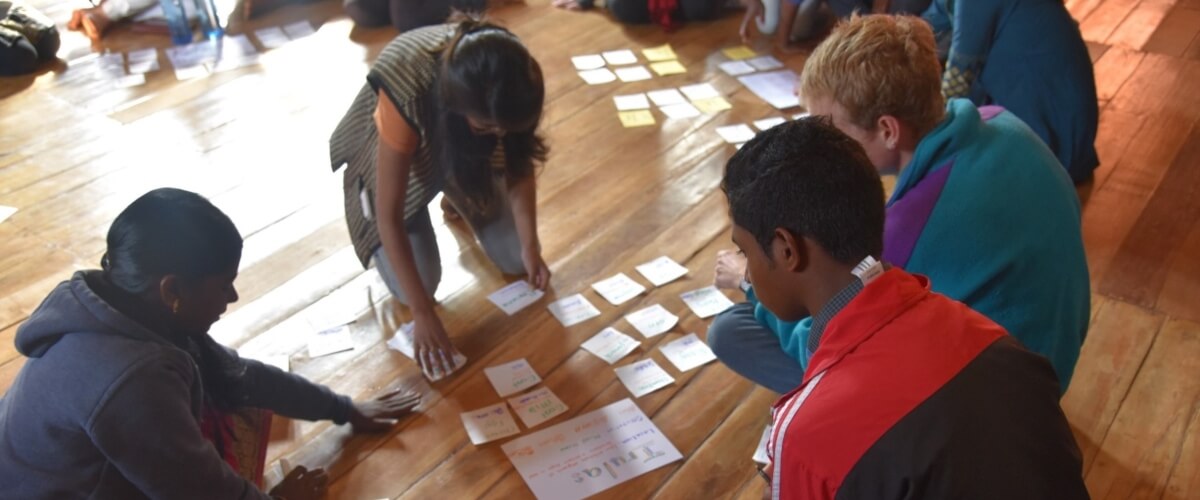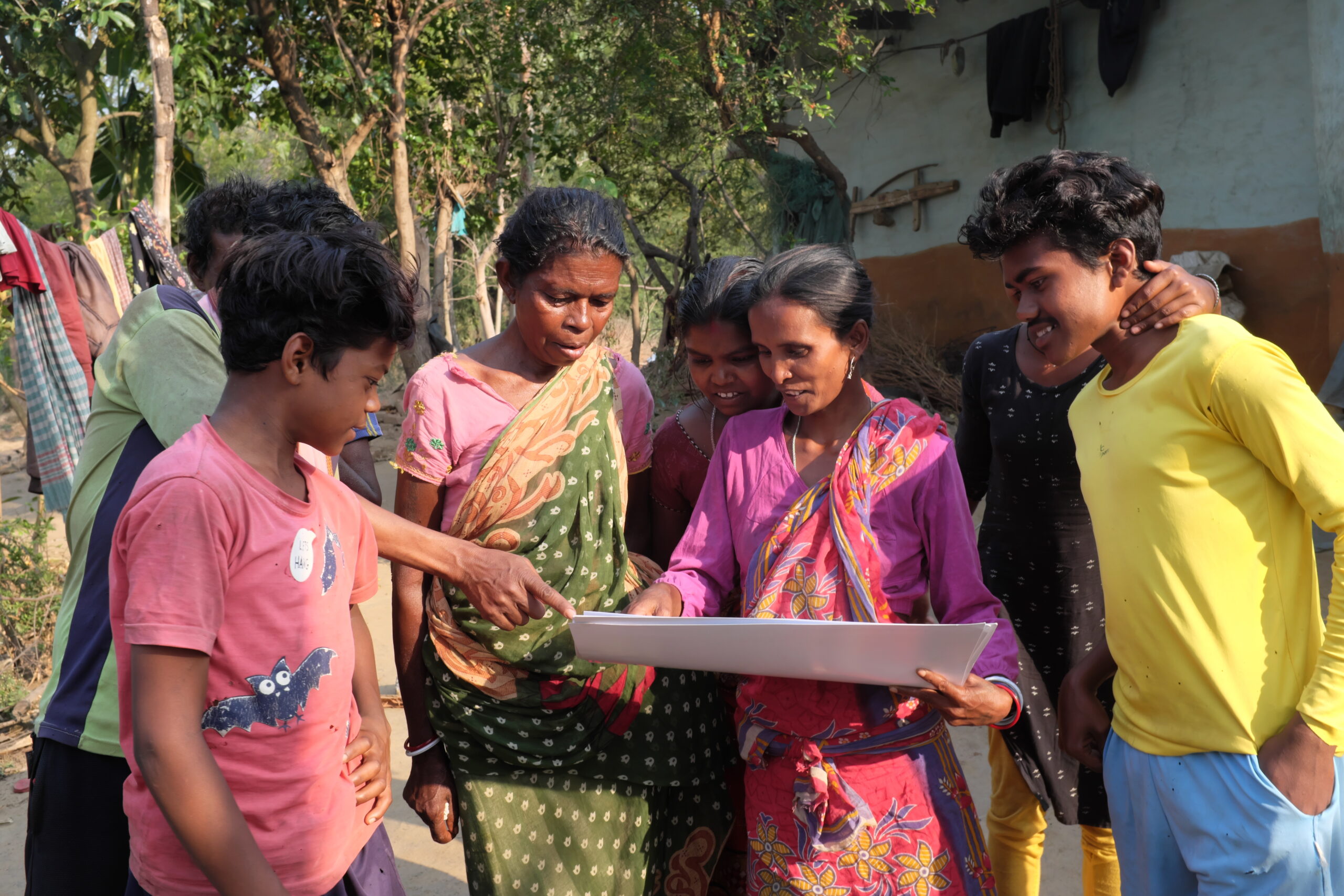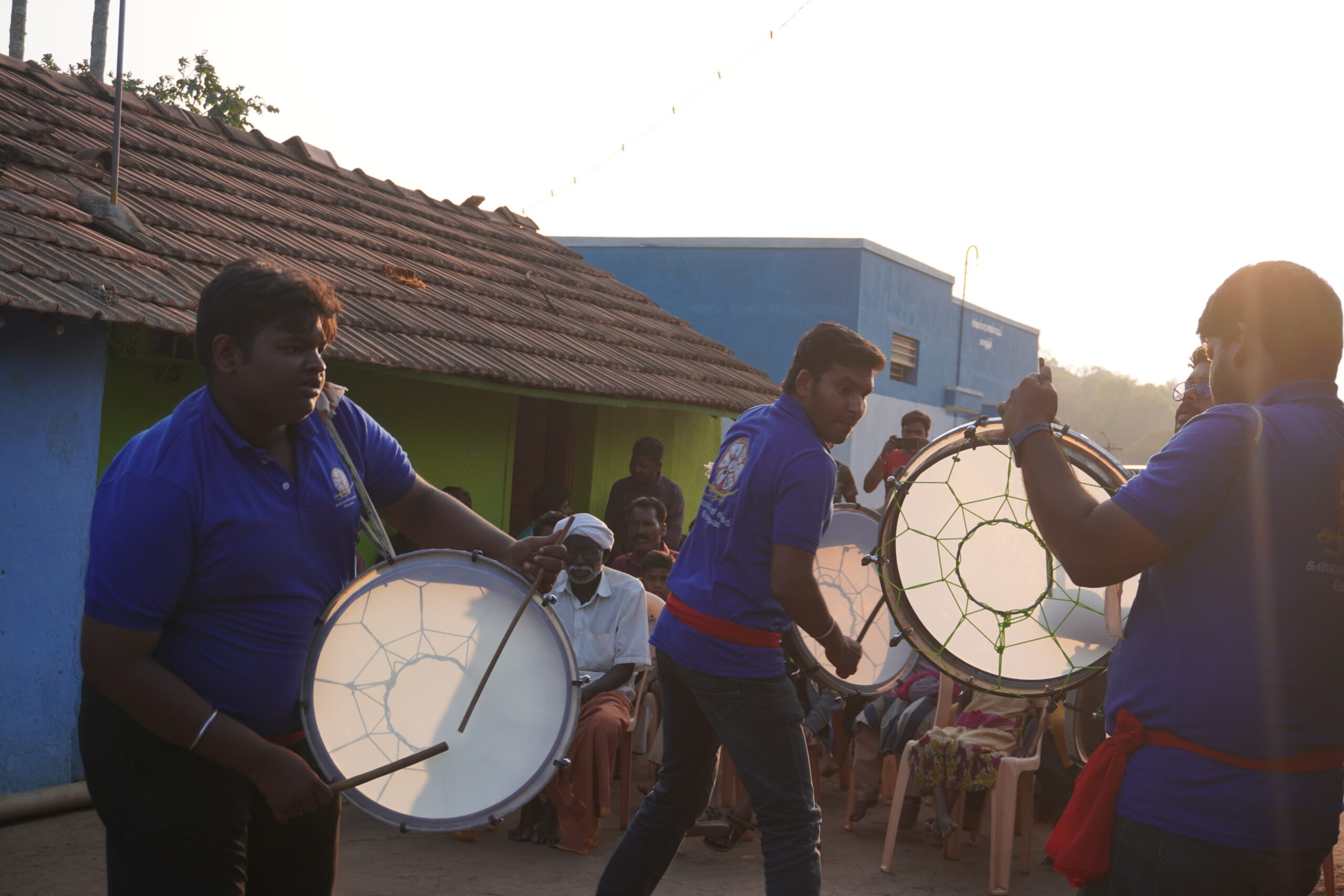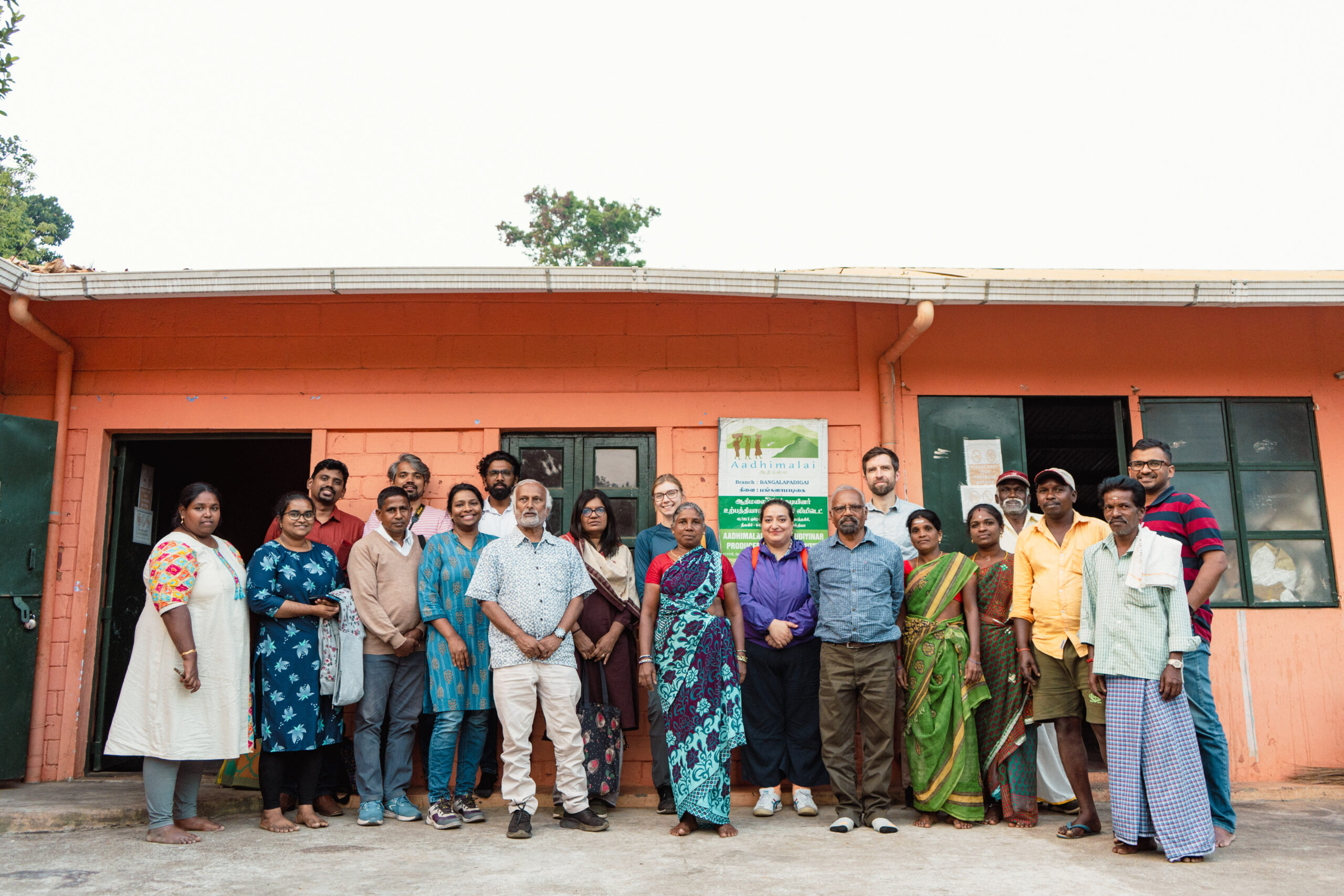Local markets in India serve as a hub for social spaces where disputes are settled, friendship bonds are made, marriage proposals take place, etc. They are also where the norms for exchange, traditionally based on trust, were imbibed within different cultures!
The week started with depiction of barter-trade systems by students, who in groups of four represented major tribal communities in Nilgiris: Todas, Irulas, Kurumbas and Kotas. Each community exchanged their locally grown produce or expertise for something in return from other communities. It included, Kotas who traded a 1 kg Silver bar in exchange for 10 kg of butter from Todas who are known for their handmade silver jewellery. In another exchange, Todas leased their land for a year in return of service provided by Kurumbas for protection from evil spirits and wild-life that hinders their livelihood activities and blessings for good fortune. Irulas had a lucky day as they traded their agricultural produces for more products than they expected from other communities.
Where and how one does shop their groceries from local markets in Ithaca and Kil-Kotagiri? The markets were brought to life in the role-play enacted by Cornell and Keystone students respectively. “How much does this cost?” asked a Cornell student from Ithaca to a vendor from Kil-Kotagiri who said it cost ₹300 per piece. “I would take it for ₹200” bargained the customer, and after negotiation, the vendor agreed to settle for ₹225. While at Wegmans, one of America’s largest regional supermarket chains that operates throughout the year, there was no room for such price negotiations. Also there were no personal interactions with customers, as the only person to be seen in the store was Sherry-their cashier who seemed stern mostly because of her boring job, and partly because of rude customers. At Kil Kotagiri, individual vendors, who own their products and lease the stall, come to market on weekends when people are free to buy.
“Why are fair-trade products highly priced compared to normal products in the market?” asked a Cornell student after a lecture on social enterprises like Last Forest Enterprise. People along the supply chain are paid on fair basis. These costs, which are not included in the price tag of normal products, give a seemingly costlier price tag for “fair-trade” in the market. From the “TRUE COST” movie, one realises that cheaper price tags are at the cost of unsafe working environment to the employees, low wages against long working hours, lack of job security, etc. A talk by Andre Leu, President of IFOAM (International Federation of Organic Agriculture Movements) gave insights on feasibility of organic farming, products of which are preferred by social enterprises like Last Forest Enterprises.
Focus of the week shifted from trade to urbanisation. Lot of buildings, busy roads, noises, chaos, pollution, jobs, and basically everything moves very fast. These things distinguish a place as a city or town instead of countryside. We went on an overnight trip to Coimbatore, the nearest big city from Kotagiri. Within the said hue and cry of what we defined a city to be we had a pleasant window shopping experience and movie time at Brookfields. The trip also included an interactive session with the Municipal Commission, which had brought out the indispensable role of governance in the smooth running of busy places like cities and big towns. We learned that the city’s water sources are two villages: Siruguanai and Pillur. Government-led conservation of these water sources would maintain and enhance the ecosystem and communities along the flow from the sources to Coimbatore City. This exposed us to the unseen dependence of city dwellers on villages for their basic resources, like water, for survival.


















